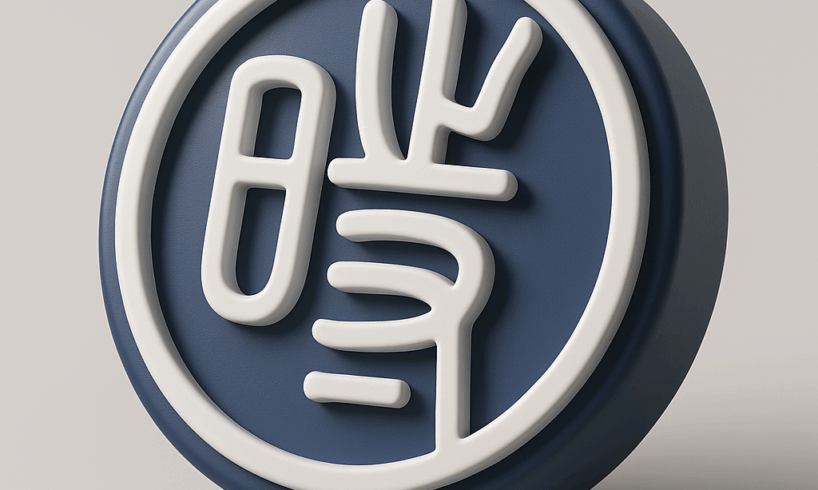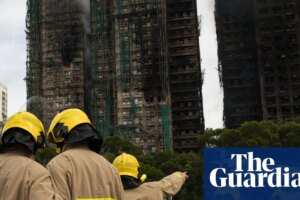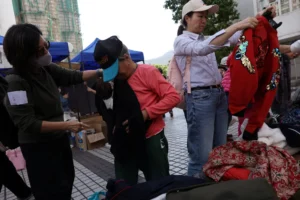
If you or someone you know is in crisis, please call the National Suicide Prevention Lifeline at 1-800-273-8255 in the United States or find local resources in the International Suicide Prevention Wiki.
Two recent incidents have reignited public concern about civil aviation safety in China, particularly as it pertains to the mental health of airline pilots. On July 1 in Jilin, Heilongjiang province, a 31-year-old China Southern Airlines pilot surnamed Li, reportedly upset after having failed a competency evaluation that disqualified him from flying, stabbed two of his colleagues (who were taken to the hospital with non-life-threatening injuries) and killed himself. The Jilin branch of China Southern Airlines declined to comment on the case, which local police say is under investigation.
The second incident was the refusal of Chinese aviation authorities to make public a long-overdue progress report on the cause of the March 2022 China Eastern Airlines Kunming-to-Guangzhou flight MU5735 crash in which all 123 passengers and nine crew members were killed, making it China’s third deadliest aviation accident. At the time, journalists were blocked from accessing the crash site, news of the crash was muted online, and Chinese news outlets were urged to follow the “official line,” refrain from printing the names of the victims, and wait for the results of the official investigation. In the intervening three years and four months, the Civil Aviation Administration of China (CAAC) has released scant information on the investigation, issuing interim reports on the first and second anniversaries of the crash, but missing a deadline for a progress report in March of this year. The failure to release this year’s report—a violation of both Chinese government guidelines and global aviation treaties that require annual updates on ongoing air-crash investigations—was met with frustration from victims’ families and the general public.
In recent weeks, a screenshot began circulating online, showing CAAC’s negative response to an application for the disclosure of government information on the MU5735 investigation. The first paragraph of the response, which is dated May 19 and bears CAAC’s official stamp, reads as follows:
“After reviewing this request for a progress report on the investigation into the March 21 [2022] China Eastern Airlines MU5735 aviation accident, it has been decided that making the report public could endanger national security and social stability. In accordance with Article 14 and Article 36 (Paragraph 3) of the “Regulations of the People’s Republic of China on Disclosure of Government Information,” this agency has decided not to disclose the requested information. [Chinese]
Article 14 of the disclosure law, referred to above, states: “Government information shall not be disclosed where it is defined as [a] state secret according to law, or its disclosure is prohibited by laws and administrative regulations, or is deemed to be a potential threat to national security, public security, economic security or social stability.” Paragraph 3 of Article 36 applies to situations in which a request for information is rejected, and stipulates that the relevant authorities must “inform the applicant of the fact and give him the reasons, where the administrative organ decides not to disclose the information according to the provisions of these Regulations.”
Although the CAAC continues to refer to the MU5735 crash as an “accident,” there are no indications that it was caused by mechanical failure, and it is widely believed to have been caused by one of the pilots. Reporting by the Wall Street Journal in May of 2022 revealed that U.S. investigators’ preliminary conclusion, based on information recovered from the Boeing 737-800’s flight-data recorder, suggested that someone in the cockpit executed an intentional nosedive, causing the plane to crash into a mountainside at high speed. China Eastern Airlines has dismissed the idea of cockpit intrusion as implausible; claimed that neither pilot had any physical, mental, or financial difficulties; and discouraged any “unofficial speculation” into the cause of the crash. Not surprisingly, many Chinese netizens are skeptical of such claims, and the CAAC’s long-delayed investigation has only compounded this public mistrust.
A now-deleted article from the WeChat official account 家庭回忆录 (Jiātíng Huíyìlù, “Family Memoirs”) argues that CAAC’s decision not to release information on the cause of the crash on grounds of “national security and social stability” is telling in and of itself. The author of the article counsels wise readers to draw their own conclusions from CAAC’s refusal:
We might have guessed that this would be the response. If it [the final report into the cause of the crash] could be made public, they would have done so long ago. The reason why it hasn’t been made public is that they can’t allow people to know.
[…] But the response, while saying nothing, did tell us something. Based on the phrasing about how making such information public would “endanger national security and social stability,” we can basically rule out exogenous causes [for the crash].
And judging by progress updates on the investigation that were made public last year, there certainly seems to be no exogenous reason [for the crash].
So while it may seem that nothing has been said, something has in fact been said. As for what that is, you may need to brush up on your media literacy to fully comprehend it. [Chinese]
CDT Chinese editors have archived a number of essays and articles reflecting on some of the systemic problems in China’s civil aviation industry, and suggesting possible remedies. A WeChat article by Wang Ziren, written in response to the workplace incident in Jilin, criticizes institutional weaknesses such as nepotism, lack of professional mobility, overly restrictive contracts, discrimination against pilots who climbed the ladder on their own merit, and an evaluative system that disincentivizes pilots from seeking psychological counseling when they most need it. A portion of the article is translated below:
What happened with [captain] Li is just the beginning.
If the system doesn’t undergo “corrective surgery,” if it doesn’t weed out those pilots who snuck in by leveraging family connections, if it doesn’t restore pilots’ rights to professional mobility, then this incident won’t be the last of its kind.
This is not an individual breakdown, but a cautionary tale for the entire industry.
You can block news, delete comments, and hold “stability maintenance” meetings, but you can’t bend reality to suit your script.
Pilots are not machines, nor are they interchangeable cogs in the wheel. They are human beings who hold the lives of hundreds of other human beings in their hands.
A pilot’s breakdown is not an emotional problem, but a symptom of cracks in the system that have long been apparent, had anyone dared to look.
Now that Li is gone, I wish that everyone would stop pushing the problem back onto him by saying, “He was unfit to fly.”
What’s truly “unfit to fly” is the system itself. [Chinese]
CDT editors also archived a post from Q&A site Zhihu by a civil aviation lawyer, who makes many of the same points addressed in Wang Ziren’s article. Comments from other Zhihu users included: “In a poor economy, these long-standing problems have finally begun to surface,” and “This tragedy was merely an outbreak. The whole organism has long been festering, and what we see today is a new abscess.” The Zhihu post takes particular aim at the inadequate infrastructure for pilot psychological counseling, and notes that the current punitive approach can both mask and magnify existing problems:
Psychological counseling for China Southern Airlines pilots has become a mere formality, and a punitive tool. Pilots can be grounded for no reason, cited for “emotional instability which endangers aviation safety,” which only serves to further mask the problem. Pilots with psychological problems pretend to be happy, which is actually more excruciating than simply being unhappy.
This crude reliance on “punitive management methods” magnifies minor problems into major problems. Regular refresher training courses and random inspections are transformed into ticking time bombs that could derail a pilot’s career. Even senior captains and flight instructors might find themselves demoted to co-pilots at the drop of a hat. [Chinese]
Another WeChat article, from blogger Xiang Dongliang, denounces official censorship and industry secrecy surrounding airline pilots and airliner crashes, and suggests that lifting this veil of secrecy is essential to improving passenger safety and restoring public trust in the airline industry. “Treating pilots as a ‘sensitive group,’” Xiang writes, “allows airlines to cover up a multitude of systemic weaknesses and managerial problems, and to shirk their responsibilities and mitigate blame.”
Although China has made great strides in airline safety over the past few decades, excessive secrecy and online censorship of information has revived worries among Chinese air travelers. In January, the CAAC urged Chinese carriers and airports to expand safety assessments in order to avoid runway obstacles, prevent bird collisions, and reroute flights to avoid passing through airspace in overseas conflict zones. The following month, Chinese lawmakers began considering changes to the nation’s civil aviation law, including increasing penalties for “spreading rumors about aviation safety,” which bodes poorly for transparency in the industry and among aviation authorities.





